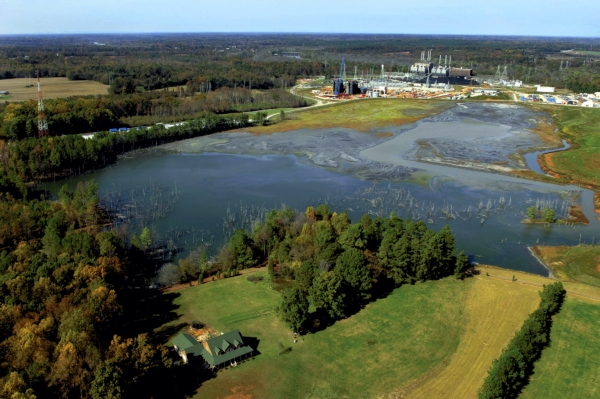Other Voices: Keep coal ash rules in place
Published 9:11 pm Sunday, March 18, 2018

- A November 2010 aerial photograph of the first holding basin that was being used to hold the coal ash from the coal-fired Buck Steam plant seen in the background. JON C. LAKEY / SALISBURY POST
A little more than four years ago, when tons of coal ash from an old Duke Energy power plant poured into the Dan River at Eden in Rockingham County, the massive spill helped prompt a tightening of federal regulations on the disposal and storage of coal ash, the toxic waste that remains after power plants burn coal to make electricity.
The Dan has been cleaned up, and Eden’s tourism economy seems to have recovered.
But we shouldn’t forget what happened back in February 2014 and why the new regulations were a good idea.
The storage and disposal of coal ash still poses serious problems. There will be such problems until all existing coal-ash ponds are cleaned up, and new issues are likely to arise as long as Duke Energy and other utilities operate coal-fired power plants — which, given the current administration’s emphasis on promoting fossil fuels rather than cleaner energy, could be for many, many more years.
So it comes as bad news that the Trump administration is rewriting the rules that the Obama administration came up with in 2015 after the spill that belched gray sludge down more than 70 miles of the Dan River in North Carolina and southern Virginia.
After the spill in Eden, state regulators fined Duke more than $6 million. The General Assembly passed a bill requiring Duke to close its 32 coal-ash ponds in North Carolina by 2029.
Almost immediately, political and legal battles erupted about which ponds to close when, how to go about closing them, how much Duke Energy can raise its rates to cover the cleanup costs and a host of other issues.
Questions about Gov. Pat McCrory’s ties to his former employer, Duke Energy, were a factor in his defeat for re-election in 2016.
So it’s not reassuring when Scott Pruitt, the head of the Environmental Protection Agency, says that the changes are being proposed in the name of federalism, to allow the states “to incorporate flexibilities into their coal and permit programs.”
Of course, the EPA also said that the changes would save electric utilities millions of dollars in annual costs.
Almost as soon as the Trump administration took, the energy industry began asking for looser regulations, saying that complying with the rules designed to protect water quality, human health and wildlife is costing the coal-fired power industry too much.
Wouldn’t it be great if those costs were steep enough to help wean the industry from coal and encourage more emphasis on cleaner energy sources?
Easing regulations is the wrong approach.
The Obama administration imposed the regulations after lengthy negotiations with utilities, other industries and environmentalists.
Relaxing those commonsense rules now — even as utilities are in the process of reporting the extent of coal-ash contamination and devising plans to address it — would mean the lessons learned in 2014 are being ignored.
— The News & Record of Greensboro


